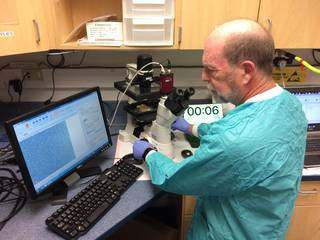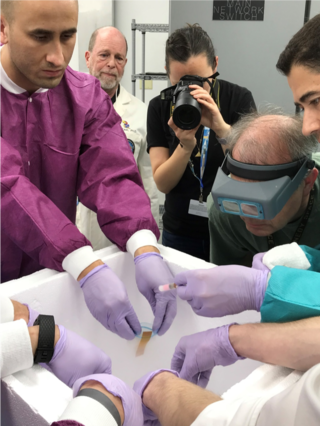
NASA has just packaged human sperm for the first time as part of the Spacex Falcon 9 cargo mission to the International Space Station (ISS) to find out how human sperms, known for squirming fast towards egg as studied in sex education, will ever succeed to squirm faster in microgravity and help to conceive in space.
ISS astronauts will experiment if the frozen sperm will initiate the process to human reproduction in space, which may help to keep human species alive even in case of the earth getting destroyed or nuked in an accidental world War 3.

The study under NASA's Micro-11 mission is packaged with both bull sperm and human sperm this time. Earlier, NASA scientists had experimented with bull and urchin sperm activation which happened quicker in microgravity, but it failed to fuse successfully with egg or almost failed.
NASA hopes to carry out the experiment successfully with human sperm to study how microgravity helps the swimming of sperm faster but fails to conceive in space. "Little is currently known about the biology of reproduction in space, and this experiment will begin to address that gap by measuring, for the first time, how well bull and human sperm functions in space," said NASA in a statement.

As studied in school level science education, successful fertilization of a human egg depends on two stages -- it should get activated, swim swiftly towards an egg and fuse with it to fertilize it. While moving faster, its cell membrane should get more fluid. While the first stage was successful in the past experiment with bull sperm, scientists are puzzled about its failure in the second stage to fertilize the egg. "Delays or problems at this stage could prevent fertilization from happening in space," NASA said.
This time both human and bull sperm was sent to ISS to conduct the experiments and compare them. NASA said its scientists will make a video to assess how fast the sperm move despite the adverse microgravity in space. Once the experiments are made, the samples will be preserved and sent back to Earth for further studies. If fusion in space emerges successful, the scientists will study whether the space sperm is any different to regular Earth sperm.
"We don't know yet how long-duration spaceflight affects human reproductive health, and this investigation would be the first step in understanding the potential viability of reproduction in reduced-gravity conditions," said NASA.










